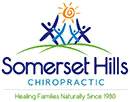DO MORE FASTER!
You've heard the complaint: there just aren't enough hours in the day. Maybe you feel this way too. Rather than frying your brain and your nerves working even longer hours try some of these simple steps to become more efficient in the time you spend on tasks.
1. Clear the clutter. Lots of people are disorganized, swamped in clutter. Many people can't find what they need, especially on their computers. People do things for years without looking at how they do them. Try keeping track of what you do everyday for a week and write it down. Then record what tasks are important and unimportant and then see what type of interruptions keep you from getting tasks done in a timely manner. This will show you which tasks are time wasters and how to keep those interruptions to a minimum. Also, this will help you prioritize what tasks need to get done first and which ones can wait till later.
2. Get out of your head. Visionaries and entrepreneurs often have a grand idea but no blueprint to make it happen. The problem is that most people don't break down their big goals into smaller action steps that can be taken on one at a time. Most people get way ahead of themselves and have no clue on how to get oriented. So write down your goals and then write specific action steps towards achieving those goals which are concrete and easier to master.
3. Assess the pros and cons. With any task good or bad. Ask yourself, "What is the value if I get this done, and what's the risk if I don't?"
4. Less is more. Working in highly focused 90 minute segments, followed by substantial breaks, reduced mental exhaustion and maximize productivity. Also, elite performers spend no more than 4-5 hours a day at their chosen field. This will help avoid burnout.
5. Rest assured. No matter how organized you are, your efforts at being more productive may be for naught if you are constantly fatigued. A study found that people who slept on average 5.6 hours per night took longer to perform tasks such as finding information quickly and accurately on computer monitors when they had adequate sleep. Their speed progressively declined with each successive week of weariness. Most adults need between 7-9 hours of sleep a night to be effective at work. Sleep experts say that a 20-30 minute nap is ideal during the middle of the day. To nap successfully, keep the room temperature comfortable, limit noise and light. Taking a quick cat nap can increase your productivity and alertness more than a cup of coffee.
Have a great weekend.
Dr. Brian Wallace
Adapted from Success Magazine
